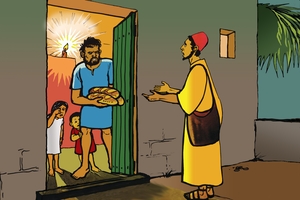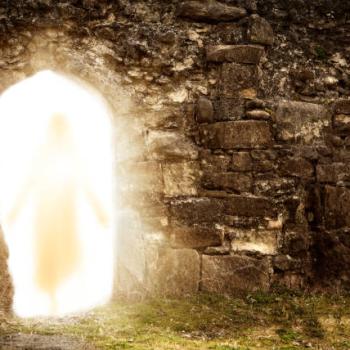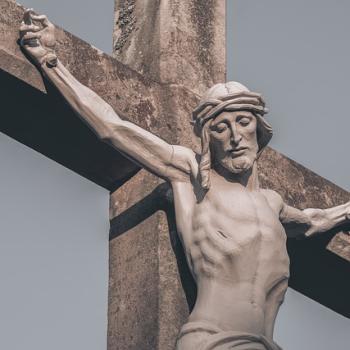
“Translator, traitor.” The saying sounds better in Italian than in English, but it applies to the Parable of the Friend at Midnight equally well in either language. And so my two favorite newer Bible translations – NABR and NRSV – have to take a back seat to the old Confraternity edition. That’s if William Herzog in Chapter 11 of Parables as Subversive Speech is right about this parable.
Jesus’ Parable of the Friend at Midnight gets its first interpretation by the Gospel writer Luke, and others usually follow his reading. Luke places the parable after the teaching of the Lord’s Prayer and before some sayings about prayer. In this context the parable is about perseverance in prayer, and my NRSV headlines the parable in just those words. Well, that’s the use to which Luke put the parable, but was it Jesus’ intention? Herzog gives us an interesting picture of village life in first-century Palestine. With that and some reasonable suggestions about translation, he reveals another possible meaning for the Parable of the Friend at Midnight.
Previous posts in this series on Herzog’s Parables as Subversive Speech:
- William Herzog Reads Jesus’ Parables, Brings them Down to Earth
- Paulo Freire, the “Pedagogue of the Oppressed”: Is This a Good Fit for Jesus?
- Laborers in the Vineyard: A Reading that Doesn’t Blame the Victims
- The Parable of the Wicked Tenants and the Wickeder Landlord
- The Rich Man and Lazarus, or an Oppressor who Won’t be Taught
- The Unmerciful Servant Parable Trashes Messianic Hopes
- The Horrifying – or Tragic – Parable of the Talents
- Publican and Pharisee: A Parable of Two Public Sinners
The Parable of the Friend at Midnight (Luke11:5-8)
For the reason above I’m using the Confraternity of Christian Doctrine translation. I just altered the word order of the last sentence for emphasis and added another choice for the last word.
And he said to them, “Which of you shall have a friend and shall go to him in the middle of the night and say to him, ‘Friend, lend me three loaves, for a friend of mine has just come to me from a journey, and I have nothing to set before him’; and he from within should answer and say, ‘Do not disturb me; the door is now shut, and my children and I are in bed; I cannot get up and give to thee’?
“I say to you, although he will not get up and give to him because he is his friend, yet he will get up and give him all he needs because of his persistence [or shamelessness].”
Pity the poor translator. Modern English style practically dictates shorter sentences, but look at that first paragraph. You can break that horribly long sentence up of course, and some translators do. But then they need to omit the question mark at the end. I tried to make shorter sentences of it and still keep it as one long question. I couldn’t do it.
Now if the neighbor’s response, “Do not disturb me…” isn’t part of a long question, then it’s his actual irritated response to his friend. So we have a grumpy neighbor who finally gives his friend what he wants because of the friend’s persistence. And, if that’s the case with humans, how much more surely will God give his children everything that they need! As long as they’re persistent in prayer, that is. A comforting lesson, I guess.
Problems with this traditional interpretation
That’s Luke’s and the subsequent tradition’s interpretation of the Friend at Midnight story. But if Jesus meant to counsel praying persistently, I rashly suggest, then he didn’t tell the story well enough. “Persistence” just shows up unexpectedly at the end. The man in need had only asked one time, and yet Jesus calls him persistent. Jesus is a better storyteller than that.
More objectively, there’s a problem with the Greek word translated as “persistence.” Its basic meaning is “shamelessness.” If Jesus really said the Aramaic equivalent of persistence, an ancient translator into Greek should have chosen a Greek word that means exactly that.
Shamelessness is the meaning Herzog works with, so I presented that option in the story above. Now the question is, Which of the two characters in the Parable of the Friend at Midnight is shameless. The grammar is ambiguous; you can only tell by context. Before we easily imagined that the persistent one was the one seeking aid. But which of the two characters should we imagine as shameless? Note that Jesus says it’s that quality, even more than friendship, that leads the sleepy neighbor to rise and render assistance. We’ll see in the next section that the one seeking help wasn’t being at all shameless. He was doing exactly what was expected. So it’s the neighbor who does something good because of “shamelessness”! It’s odd enough for a close look.
Shame and honor in a first-century Palestinian village
The events in Jesus’ story take place in a village. That’s clear from the fact that a man can go out at midnight and walk to his neighbor’s house and back without making his unexpected guest wait too long. The villagers are mostly peasant farmers, whose fields lie adjacent to the village. There is a common oven, which the village wives use in turns to bake bread. Conveniently, everybody knows who is most likely to have fresh bread on hand.
An unexpected visitor is a challenge to the honor of the whole village. No matter the hour of day or night, the host is obligated to offer the guest a substantial meal. Not having enough at hand, he goes to a neighbor. One of the sayings with which Luke follows the parable is “Knock and it shall be opened unto you.” But this man doesn’t knock. He simply calls out so that the neighbor will recognize his voice. This wakes up most of the village, who now know about the arrival of a visitor. All will now give whatever is necessary, “including the best crockery and serving dishes,” Herzog says, to uphold the village honor.
Jesus’ listeners, village folk themselves, know that it is inconceivable that the first neighbor would respond the way Jesus suggests. The Confraternity translation is right. It is a rhetorical question, and the answer, if one needed to say it, is: That’s ridiculous; it would never happen. The man will get up willingly, stumble over his sleeping children, and give his friend the three fresh loaves he asked for.
These would be small loaves, which the guest will use as serving utensils to scoop up food from the common dish. Two loaves would be enough for one serving. But just enough doesn’t satisfy the demands of honor. So there must be three loaves.
Who is shameless and in whose sight?
It looks like everyone in the whole village is doing what is honorable. But Jesus says the neigihbor will give aid because of his shamelessness. That word has cause interpreters a lot of trouble. Herzog looks for the answer beyond the village. It’s in other quarters that the whole village seems to be acting without a proper sense of shame.
At the best of times village life is precarious. In such a situation villagers crave security, more than anything else. They will judge a system that extracts wealth from them in the form of taxes and fees, not by how much is taken but by how much is left. When that remainder is too little for survival – say, in a bad year for crops – they will expect redress in some form. Jewish Scriptures gave them moral cover with its provisions for loan forgiveness and support for the poor.
In the early decades of the first century, things were getting worse for the poor. Farming was increasingly commercialized. Money lenders, with the help of a new interpretation of the Torah, no longer needed to observe the Sabbath Year’s forgiveness of loans. Village farmers could easily find themselves descending from small landholders to tenant farmers on another’s fields to day laborers. Each step downward involves a reduction in security.
This extravagant meal, for a village, is a paltry affair by the standards of the rich, but it’s still extravagant. It could only seem foolish to those whose own foolishness consists in regularly spending huge sums for show. That’s money extracted from these same villagers. In the eyes of the urban elite, the entire village of Jesus’ parable acts with shameless disregard for their future. With delicious irony Jesus says “because of shamelessness” neighbors will give all that a friend in need requires.
“The Kingdom of God is in your midst.”
The elite of Jesus’ world neglected the Scriptures’ compassion for the poor but excelled at observing the purity code as religious leaders interpreted it. They assumed for themselves the prerogatives of the ritually pure—participation in temple sacrifices and even a place at the messianic banquet in the longed-for kingdom of God. They demeaned the poor for the shameless extravagance of their custom of welcoming visitors and supporting each other. I can imagine a scolding like “They can’t pay the temple tithe, but they can waste money on a random stranger. Does their extravagance know no bounds?”
Jesus coopts the “shameless” epithet and turns it into an honorific. No interpretation of the Law that dehumanizes them can bind the villagers. Nor can an economic system that reduces their existence to mere survival. Herzog says the peasants found ways
To cooperate and to provide hospitality. In so doing, they participated in a “shameless” social order…. [T]heir continual but small redistributions of wealth and food foreshadowed a different order of human relations….
And
It is in these meals, not in the great feasts of the elites, that the analogy to the messianic banquet is to be found.
As Jesus, in another place in Luke’s Gospel, assures the poor of Palestine: “The Kingdom of God is in your midst.” (Luke 17:21)
Note: I am working with an online version of Herzog’s book. All quotes and indirect references are to Chapter 11 of Parables as Subversive Speech. I am unable to give page numbers.
















